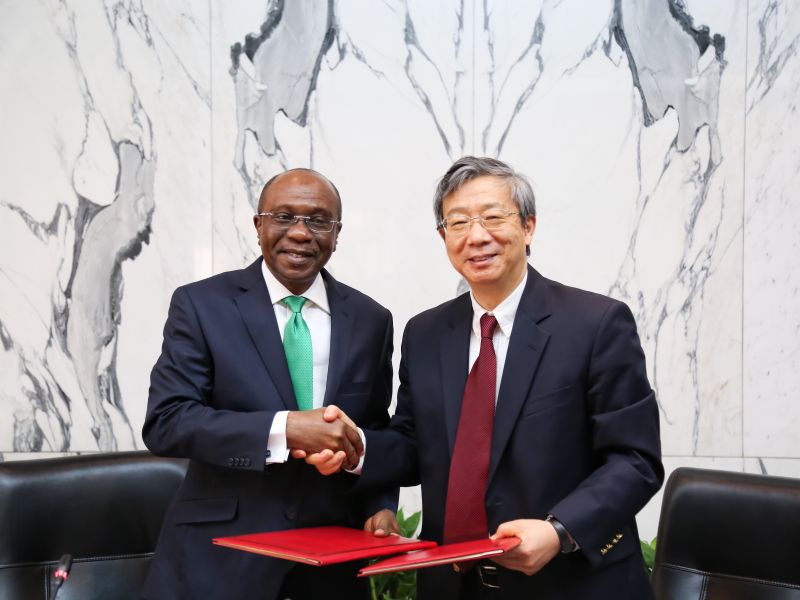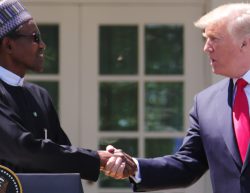The Central Bank of Nigeria (CBN) and the Peoples Bank of China (PBoC) last Friday signed a bilateral currency swap agreement for up to $2.5bn, the CBN announced Thursday.
The Governor of the CBN, Mr. Godwin Emefiele, led CBN officials while PBoC Governor, Dr. Yi Gang, led Chinese team at the official signing ceremony in Beijing, China, on Friday 27th April 2018, a culmination of over 2 years of painstaking negotiations by both Central Banks.
Nigeria is the third African country to have such an agreement in place with the PBoC with both the Nigerian and Chinese officials expressing delight at the conclusion and signing of the agreement.
Both countries also expressed the hope that it would boost mutually beneficial business transactions between Nigeria and the Peoples Republic of China.
The transaction which is valued at Renminbi (RMB) 16 billion, or the equivalent of about $2.5bn, is aimed at providing adequate local currency liquidity to Nigerian and Chinese industrialists and other businesses thereby reducing the difficulties encountered in the search for third currencies.
Among other benefits, this agreement will provide Naira liquidity to Chinese businesses and provide RMB liquidity to Nigerian businesses respectively, thereby improving the speed, convenience and volume of transactions between the two countries. It will also assist both countries in their foreign exchange reserves management, enhance financial stability and promote broader economic cooperation between the two countries.
With the operationalisation of this agreement, it will be easier for most Nigerian manufacturers, especially small and medium enterprises (SMEs) and cottage industries in manufacturing and export businesses to import raw materials, spare-parts and simple machinery to undertake their businesses by taking advantage of available RMB liquidity from Nigerian banks without being exposed to the difficulties of seeking other scare foreign currencies. The deal, which is purely an exchange of currencies, will also make it easier for Chinese manufacturers seeking to buy raw materials from Nigeria to obtain enough Naira from banks in China to pay for their imports from Nigeria. Indeed, the deal will protect Nigerian business people from the harsh effects of third currency fluctuations.






















Leave a comment